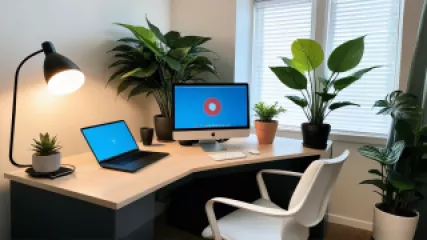Avoiding Burnout: My Journey to Finding Balance in Online Therapy Sessions
It was a sunny morning when I logged onto my computer for another day of online therapy sessions. As a licensed therapist, I had made the transition from traditional in-person therapy to virtual sessions in order to reach a wider client base. Little did I know that this transition would bring about its own set of challenges, including the risk of burnout.
Introduction
Burnout is a serious issue that many professionals face, regardless of their field. As a therapist, I had always been aware of the importance of self-care and stress management techniques. However, the demands of online therapy sessions brought a whole new level of stress into my life. It became clear to me that I needed to find a balance between providing quality care to my clients and taking care of my own mental health.
In this article, I will share my personal journey of avoiding burnout in online therapy sessions. I will discuss the challenges I faced, the strategies I implemented, and the mental health resources that helped me along the way. My hope is that by sharing my story, other therapists and professionals can learn from my experiences and find their own path to balance.
The Challenges of Online Therapy Sessions
Transitioning to online therapy sessions brought about a unique set of challenges that I had not anticipated. The lack of physical presence and the reliance on technology created a different dynamic between myself and my clients. Additionally, the blurred boundaries between work and personal life made it difficult to disconnect and recharge.
One of the biggest challenges I faced was the shift in energy during virtual sessions. In-person therapy allows for the therapist to pick up on subtle cues and body language, which can be lost in the digital realm. It required me to adapt my therapeutic approach and find new ways to connect with my clients.
Another challenge was the constant availability that online therapy seemed to demand. With the convenience of virtual sessions, it became easier for clients to schedule appointments outside of traditional working hours. While this flexibility was beneficial for many, it also meant that I had to be mindful of setting boundaries and not overextending myself.
Strategies for Avoiding Burnout
Recognizing the potential for burnout, I knew that I needed to implement strategies to protect my mental health and well-being. Here are some of the strategies that helped me find balance in my online therapy sessions:
- Establishing a Structured Schedule: I found it crucial to establish a structured schedule for my therapy sessions. By setting specific hours for work, I was able to create boundaries and ensure that I had time for self-care.
- Taking Regular Breaks: I learned the importance of taking regular breaks throughout the day. These breaks allowed me to recharge and refocus, ultimately enhancing the quality of my sessions.
- Practicing Mindfulness: Incorporating mindfulness techniques into my daily routine helped me stay present and reduce stress. Whether it was a short meditation or a mindful walk, these practices helped me maintain a sense of calm amidst the demands of online therapy.
- Seeking Supervision and Support: Recognizing the value of supervision, I sought support from colleagues and mentors. Having a space to debrief and process challenging cases proved invaluable in preventing burnout.
- Engaging in Self-Care Activities: I made it a priority to engage in activities that brought me joy and relaxation outside of work. Whether it was reading a book, practicing yoga, or spending time in nature, these activities acted as a buffer against the stressors of online therapy.
Mental Health Resources for Professionals
Throughout my journey, I discovered several mental health resources that provided guidance and support. These resources can be beneficial for any professional, not just therapists:
- Professional Associations: Joining professional associations in your field can provide access to resources, continuing education opportunities, and a supportive community of colleagues.
- Peer Support Groups: Connecting with peers who are experiencing similar challenges can offer a sense of validation and understanding. Peer support groups can be found through local organizations or online platforms.
- Online Courses and Webinars: Taking online courses and webinars focused on stress management and self-care can provide valuable tools and strategies for professionals.
- Therapy and Counseling: Seeking therapy or counseling for oneself is not only beneficial for personal growth but can also provide insight into effective therapeutic techniques.
- Workplace Support: Engaging with your workplace and discussing potential support systems or accommodations can help alleviate stress and prevent burnout.
Conclusion
Navigating the world of online therapy sessions brought its fair share of challenges, including the risk of burnout. By implementing strategies such as establishing a structured schedule, taking regular breaks, practicing mindfulness, seeking supervision and support, and engaging in self-care activities, I was able to find balance in my work and prevent burnout.
Additionally, the utilization of mental health resources, such as professional associations, peer support groups, online courses and webinars, therapy and counseling, and workplace support, proved instrumental in maintaining my well-being as a therapist.
Remember, prioritizing your mental health is not only crucial for your own well-being but also for providing effective care to your clients. By finding balance and practicing self-care, you can continue to make a positive impact in the lives of those you serve.
Photo by Micky Harrison on Unsplash






